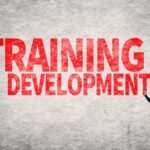Interview With Mr. Dave Ulrich
Interviewer: Good day, Professor Ulrich. Thank you for joining us today for this interview. As a renowned expert in the field of human resources, you have made significant contributions to the study and practice of HR management. Could you share with us some key insights from your research on HR effectiveness and its impact on organizational success?
Dave Ulrich: Good day, and thank you for having me. It’s a pleasure to discuss my research and the role of HR in driving organizational success. One key insight from my research is the importance of HR as a strategic partner in organizations. Effective HR practices can contribute to better employee engagement, increased productivity, and improved financial performance. When HR professionals align their efforts with the strategic goals of the organization, they can create a competitive advantage through their people.
Another important finding is the impact of HR competencies on HR effectiveness. Through my research, I have identified several key competencies that HR professionals should develop, such as business acumen, relationship building, change management, and HR analytics. By mastering these competencies, HR professionals can become strategic advisors to business leaders, helping to shape and implement people-centric strategies that drive organizational success.
Interviewer: The field of HR continues to evolve, influenced by changing organizational dynamics and emerging trends. In your view, what are some of the key challenges and opportunities HR professionals face today?
Dave Ulrich: Indeed, the field of HR is continually evolving, and HR professionals face both challenges and opportunities in this dynamic landscape. One key challenge is adapting to the rapid pace of technological advancements and digital transformation. HR professionals must embrace technology and leverage it to enhance HR processes, improve talent acquisition and management, and enable data-driven decision-making.
Another challenge is navigating the complex global business environment. HR professionals need to understand cultural nuances, diversity and inclusion, and international employment laws to effectively manage a diverse workforce and drive global HR strategies.
In terms of opportunities, HR professionals have the chance to play a more strategic role in organizations. By demonstrating their value as trusted advisors and business partners, HR professionals can contribute to strategic decision-making and shape the organizational culture to attract, develop, and retain top talent.
Additionally, HR professionals have the opportunity to leverage HR analytics and data-driven insights to make informed decisions, measure the impact of HR initiatives, and enhance workforce planning and development.
Interviewer: As organizations increasingly recognize the value of HR, what advice would you give to HR professionals who aspire to become strategic partners and drive meaningful change within their organizations?
Dave Ulrich: My advice to HR professionals aspiring to become strategic partners is to focus on three key areas: building HR competencies, understanding the business context, and demonstrating the value of HR initiatives.
First, HR professionals should continually develop their HR competencies, including business acumen, data analysis, and change management. By expanding their skill set, HR professionals can effectively contribute to strategic discussions and provide innovative solutions.
Second, it is crucial for HR professionals to understand the business context in which they operate. This means gaining a deep understanding of the industry, the organization’s goals and challenges, and the external factors that impact the business. This knowledge will enable HR professionals to align HR strategies with the broader organizational strategy and make informed decisions.
Finally, HR professionals must demonstrate the value of HR initiatives by measuring their impact and outcomes. By using metrics and analytics, HR professionals can show the connection between HR practices and business results, thereby gaining credibility and influencing decision-makers.
Interviewer: Thank you, Professor Ulrich, for sharing your insights and expertise in the field of HR. Your research has undoubtedly shaped the practice of HR management and has been influential in guiding HR professionals worldwide.
Dave Ulrich: You’re welcome, and thank you for the opportunity to discuss these important topics. I remain committed to advancing the field of HR and supporting HR professionals in their efforts to drive organizational success and create positive work environments.


































